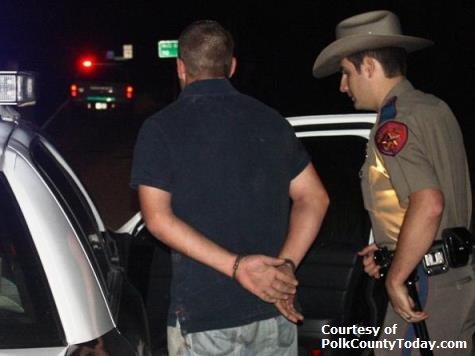
Texas State Representative Allen Fletcher (R-Cypress) introduced a bill to allow drivers who have warrants for unpaid traffic tickets to pay their overdue fine via credit or debit card directly to the court via a police car payment terminal. The bill (HB 121) would give drivers the option of paying their past due traffic ticket after a capias warrant has been issued. Under current Texas law, a police officer who discovers the driver as a capias warrant must take the driver into custody and take them to jail.
“When this happens,” Fletcher said to Breitbart Texas in an exclusive interview, “several bad things happen. Valuable law enforcement resources are taken off the streets for processing minor offenders into jail. Very expensive jail space is taken up by someone who could simply pay the fine they have failed to pay. And, citizens who really don’t need to be in jail are put through a humiliating and expensive jail booking process.”
Cities and counties across Texas are owed billions of dollars in unpaid traffic fines for Class C traffic offenses. When the driver does not appear in court or pay their fine by the date due on the initial ticket, a warrant is issued by the court for the arrest of the driver. Fletcher says the current law is someone ambiguous and could be construed by officers that they have no choice but to arrest the driver who has a warrant. Some counties currently give the officer the option of taking the driver to a convenience store where they can get a money order or certified check to pay their fine in lieu of being arrested on the warrant.
“This bill clarifies that law and makes it clear officers can collect the payment via credit card or debit card for unpaid Class C misdemeanor arrest warrants and unpaid capias pro fine arrest warrants,” Fletcher explained. Fletcher is currently the only retired police officer in the Texas House and serves as Vice-Chairman of the House Committee on Homeland Security and Public Safety. He has a clear understanding of the problems faced by patrol officers in these situations and the impact on drivers who are arrested on the side of the roadway for unpaid tickets.
“It is very expensive and humiliating for drivers in these circumstances,” Fletcher said. “Their cars are impounded if there is no other licensed driver and if they have minor children in the car, family members must be called to pick up the children. This also takes up the officers’ time waiting for a wrecker to come take the vehicle from the side of the road and for family members to arrive to take custody of children.”
The bill is passive in nature in that the driver can choose not to pay the fine at the side of the road and be taken to jail for the warrant. The officer also has flexibility as they are not required to accept the payment from the driver. If the payment is made by the driver and accepted by the officer, the officer must then release the driver.
Critics of the bill claim it will force drivers being stopped for a new ticket to pay their fine on the spot or face arrest. “This is not correct,” Fletcher responded. “This bill applies only to situations where the driver has an old ticket they have not taken care of by paying the fine or setting a court date for trial on the offense.”
Others have claimed the bill would deprive drivers of due process by forcing the payment of the fine. “No one is forced to do anything,” Fletcher said. “The driver can choose to pay the fine via credit or debit card to avoid arrest or they can be taken to jail on the warrant where they can face the court and be tried on the charge on their outstanding ticket.”
The bill was introduced late in the 2013 session and was approved in committee according to Fletcher. The bill then went to the Calendars Committee but ran out of time to be scheduled for a floor vote in the House.
Bob Price is a senior political news contributor for Breitbart Texas and a member of the original Breitbart Texas team. Follow him on Twitter @BobPriceBBTX.

COMMENTS
Please let us know if you're having issues with commenting.